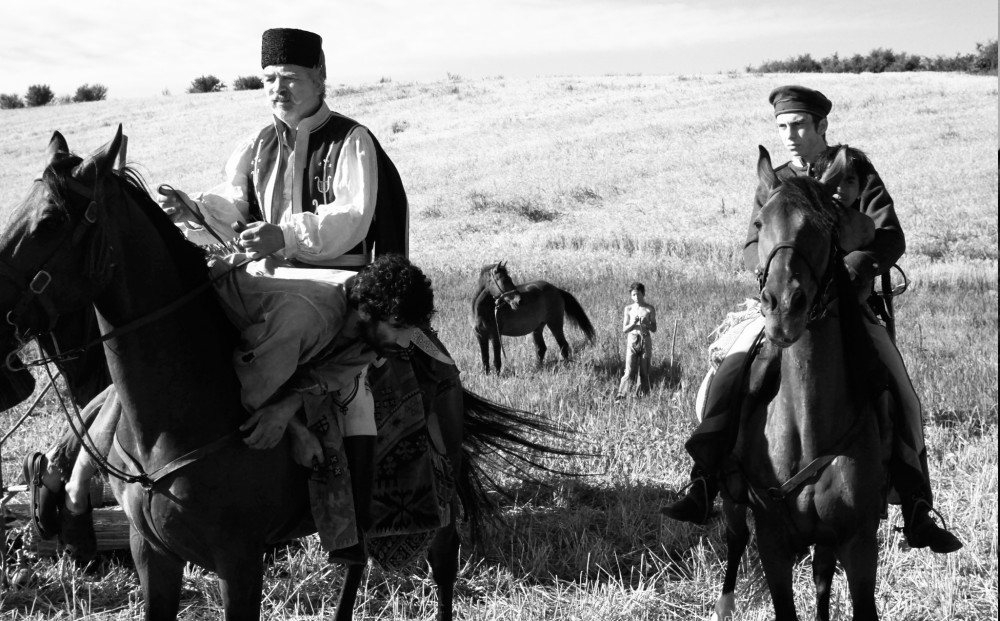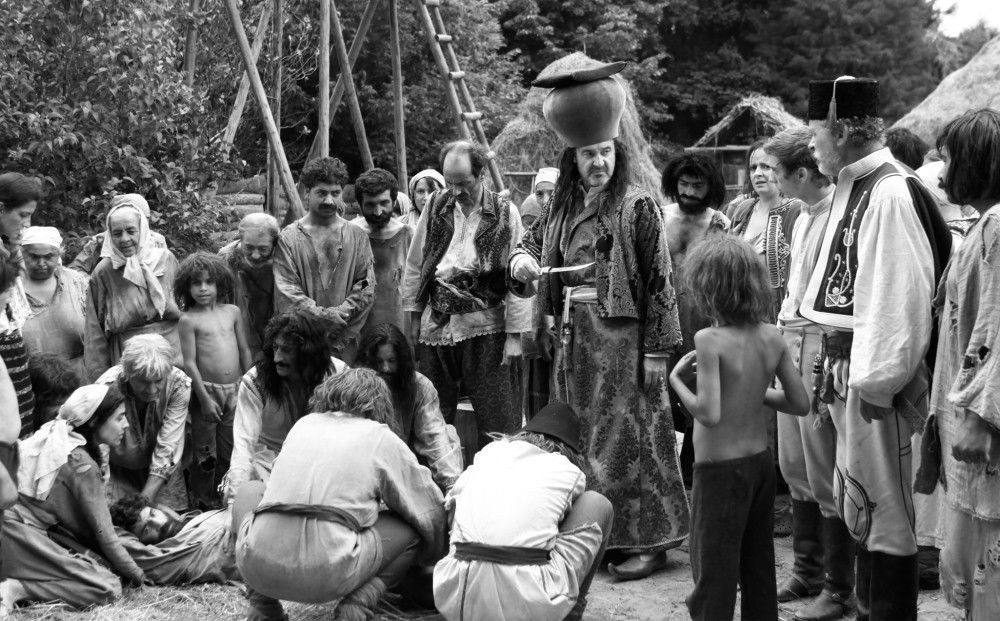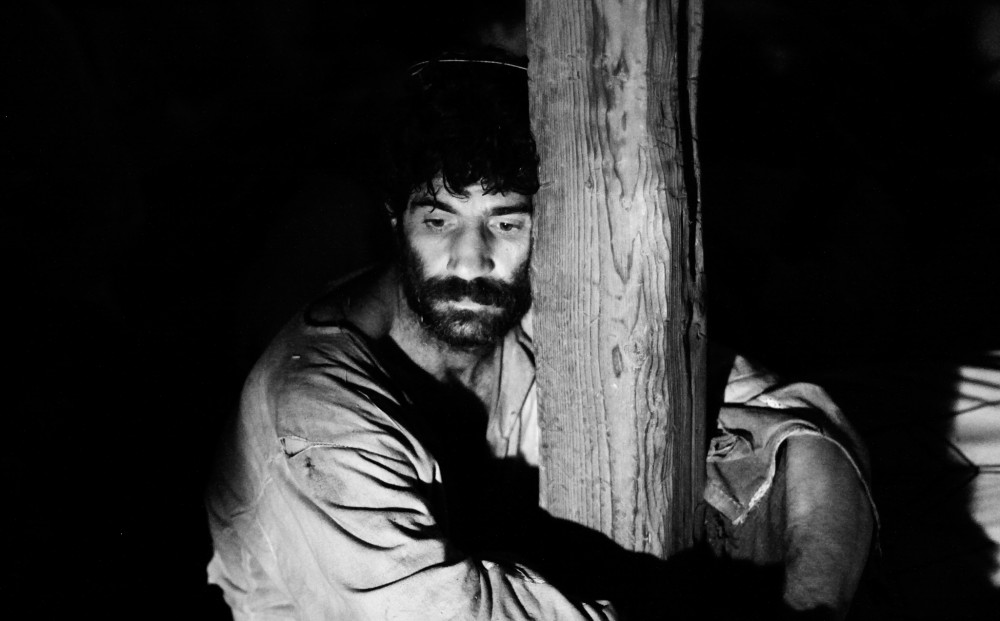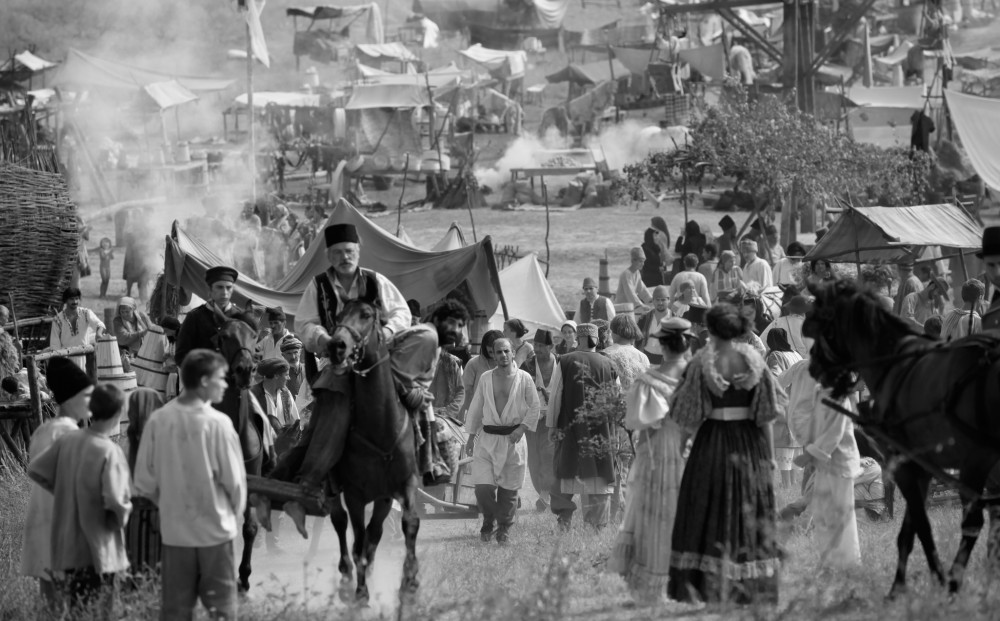AFERIM!
3:30
Saturday, November 23
(2015, Radu Jude) On the hunt for a fugitive slave, a bounty hunter and his son have encounters both scathingly funny and horrifying, in a 19th Century odyssey tackling a shameful episode of Romanian history. DCP. Approx. 105 min.
Reviews
“Shot in richly toned, wide-screen black and white, Aferim! looks like an elegant exercise in period playacting. But it casts a fierce, revisionist eye on the past, finding the cruelty and prejudice that lie beneath the pageantry.”
– A. O. Scott, The New York Times
“Aferim is a Turkish loan word Romanians use for “bravo”, but with a slight sarcastic edge. (Think ‘Oh, braaaaavo.’) It is repeated by pretty much every character in this shaggy manhunt through 1830s Wallachia, as if the movie itself is winking its awareness that these characters, while still sympathetic, are all wretched and deplorable. Aferim! is rife with foul behaviour, vulgar racism, sexism and a general low opinion of human life. A moral peak is, for example, when a lead character suggests perhaps a prisoner shouldn’t be summarily executed, just beaten to the point of near-death in the most humiliating fashion. (Heartwarming!) And yet, as with so many Romanian films, Radu Jude’s approach is one of deadpan humor, born from a world-weary culture grappling with a bumpy history that seems to have only one constant: people were made to suffer... It’s worth mentioning again that, somehow, this movie, with all its full-frontal historical horror, is still loaded with laughs. It’s a gallows humor reminiscent of Robert Altman’s best work, and the symphony of spitting, hacking and various other bodily functions evokes the stench of period fables found in John Bath's fiction.”
– Jordan Hoffman, The Guardian




